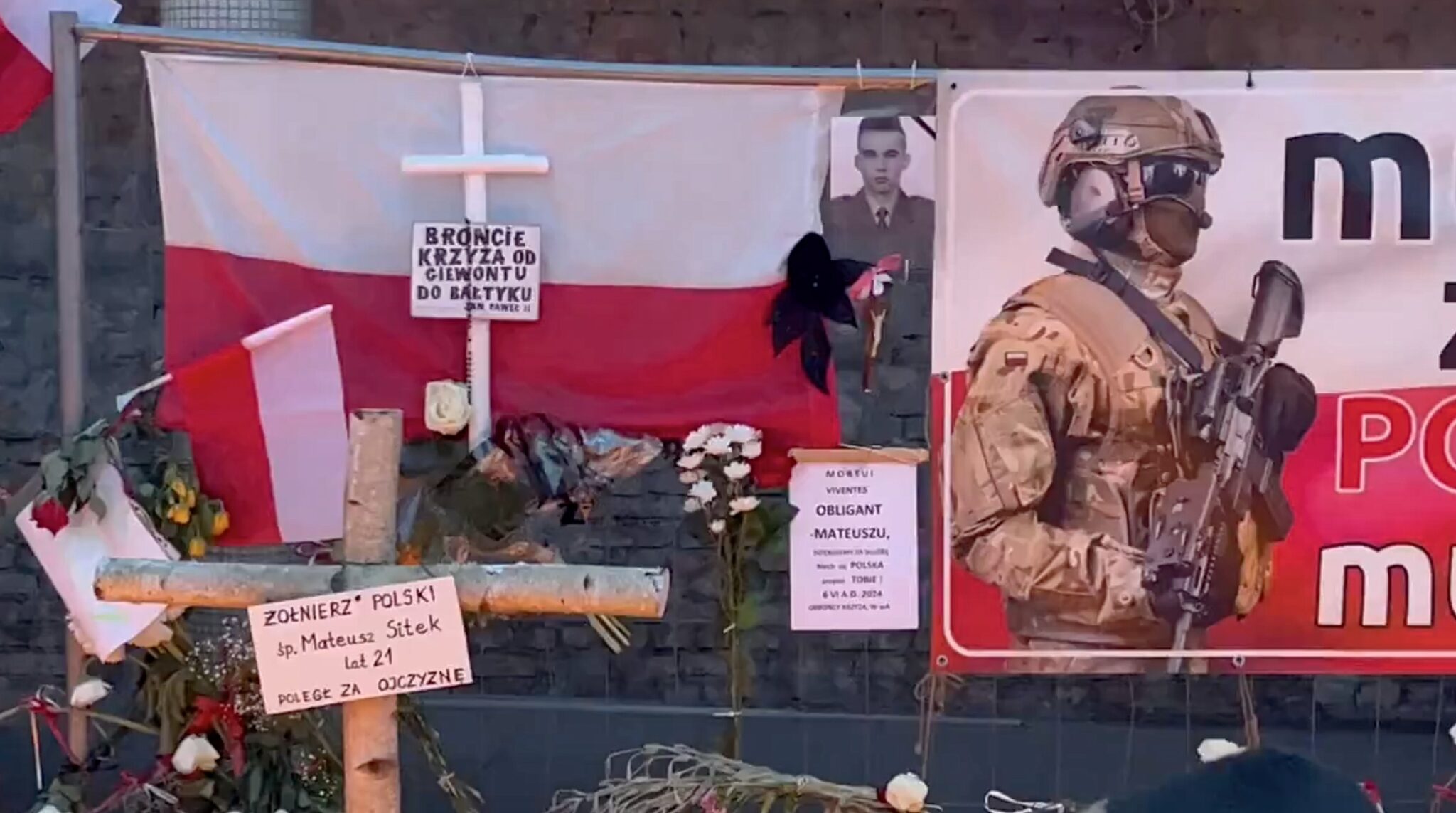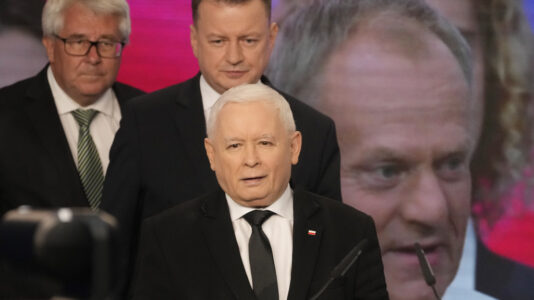Over the weekend, large numbers of migrants attempted to cross the Polish-Belarusian border, including 150 on Saturday alone. Authorities are becoming increasingly concerned, as more and more of them are willing to use force against border guards and soldiers, which in turn requires authorities to deploy more forceful measures to stop them.
During the attacks, border guards are being bombarded with projectiles, including stones and tree branches. This comes after migrants murdered a Polish soldier during an attack earlier this month.
On Saturday, the chief commander of the police, Inspector Marek Boroń, traveled to the Polish-Belarusian border at Narewki, where he met with uniformed officers. During a press briefing, he conveyed that the police officers’ equipment is “adequate for the situation,” all officers are armed and have other means of direct coercion, and that training involving soldiers has begun both at the border and in preventive units.
The death of private Mateusz Sitek, a soldier from the 1st Warsaw Armored Brigade who was pronounced dead last week, has raised anxiety among Poles over whether the soldiers and guards on the border are fully equipped, authorized to use weapons, and trained to handle the situation.
It was with these concerns in mind that hundreds marched in Warsaw in silence in remembrance of private Sitek.
People have been leaving candles and flowers outside of the hospital in which private Sitek died, and a banner appeared with the statement: “We stand behind our men in uniform.”
The banner is serving as a mark of protest against the arrest in March of three soldiers for using firearms to fire warning shots into the air while deterring a migrant attack on the border.
Law and Justice (PiS) leader Jarosław Kaczyński and former Defense Minister Mariusz Błaszczak visited the hospital to pray for the fallen soldier.
No government representatives from the ruling left-liberal government have visited the hospital.






